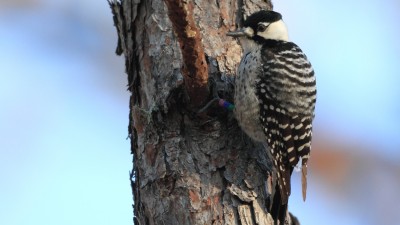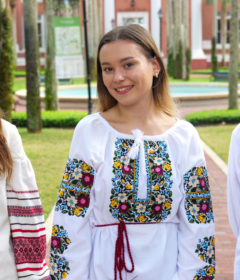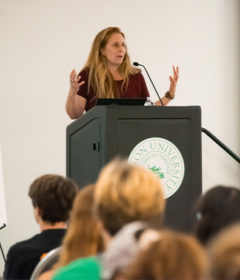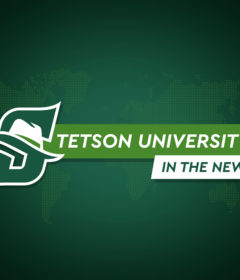Stetson University on Princeton Review’s “Green” List
Environmentally aware university praised for commitment, proactive approach
 Stetson University has been recognized as a “green” university by Princeton Review’s Guide to 353 Green Colleges: 2015 Edition.
Stetson University has been recognized as a “green” university by Princeton Review’s Guide to 353 Green Colleges: 2015 Edition.
Just in time for the 45th anniversary of Earth Day on Apr. 22, Princeton Review’s Guide praised Stetson for its commitment to environmental education, environmentally responsible purchasing, efficient use and conservation of resources, minimizing sold waste and hazardous materials, and promoting a green campus design that incorporates plants native to Florida.
“Stetson’s Native Plant Policy is a great example of the proactive approach the university takes in addressing sustainability issues on campus,” says the guide, noting that the move “cuts down on its use of fertilizers and pesticides, since indigenous plants require less maintenance as compared to traditional landscaping plants.”
“Among nearly 10,000 teens who participated in our 2015 College Hopes & Worries Survey, 61% told us that having information about a school’s commitment to the environment would influence their decision to apply to or attend the college,” said Robert Franek, The Princeton Review’s senior vice president-publisher. “We strongly recommend Stetson University and the schools in this guide to environmentally minded students who seek to study and live at green colleges.”
Other notable “green” efforts at Stetson include:
· Placing top five in the nation for the past two years in the Recycle Mania Grand Championship category. Stetson recycles more than 200,000 pounds of paper and cardboard, 10,000 pounds of plastic, and 1,000 pounds of aluminum each year.
· Through its Roots and Shoots program, inspired by Jane Goodall’s visit to campus, the university encourages students to give their time to the “environment, animals, and the community.”
· Stetson’s Lynn Business Center is LEED-certified. Notably, it was also the first green building in Florida.
· The campus is committed to LEED certification for new construction and renovations, and the Marshall and Vera Lea Rinker Environmental Learning Center, which features a rainwater collection system, recycled metal roofing, and a geothermal heating system, has also achieved LEED Gold (the second LEED-certified building on campus).
The free, 218-page guide is downloadable at www.princetonreview.com/green-guide. There users can peruse detailed “Green Facts” write-ups on the schools. The write-ups report on everything from the school’s use of renewable energy, recycling and conservation programs to the availability of environmental studies and career guidance for green jobs.



